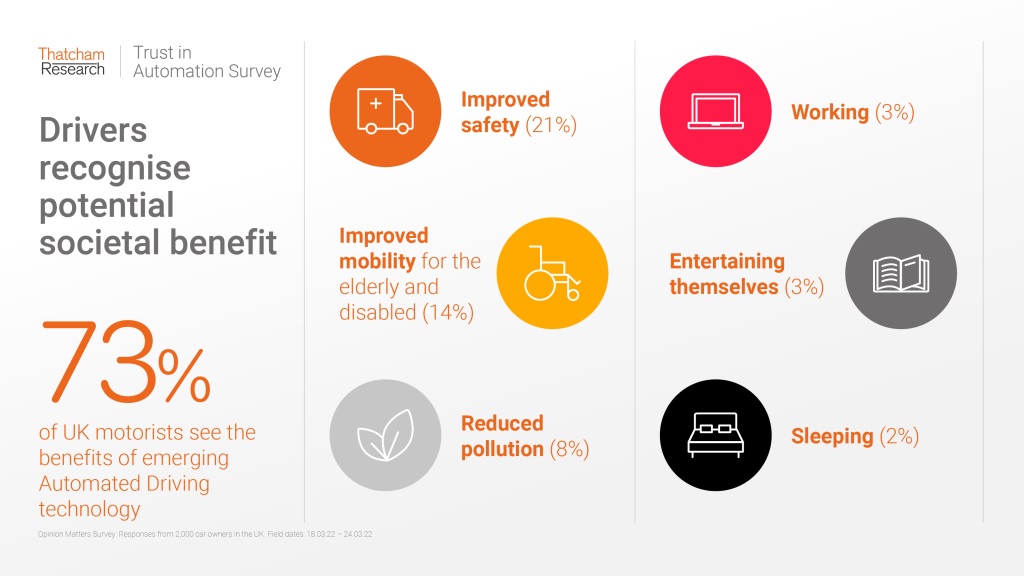
Image: Thatcham Research
Thatcham Research is calling on stakeholders to come together to instil trust in automation, on the back of a survey showing a significant proportion of drivers mistakenly believe that fully autonomous driving is possible today.
The Trust in Automation consumer study reveals that just over half of UK drivers (52%) think that they can buy a fully autonomous car today.
This is despite the fact that only assisted driving systems, which require driver support, are currently available in the UK.
Matthew Avery, chief strategic research officer, Thatcham Research, said: “Realising the Government’s stated safety ambition for automated vehicles is dependent on driver education.
“This can’t just be lip service. With more than half of the UK public believing that Autonomous driving is here today, the perception is racing ahead of the reality.
“This demonstrates just how much work needs to be done to set realistic consumer expectations of the first vehicles offering limited self-driving functionality, when they do become available.
“Put simply, the benefits of automation will not be delivered if people don’t fully understand its limitations.”
UK roads will potentially see vehicles with ‘self-driving capability’ by 2025, according to a recent Government announcement.
However, the first iterations of the technology, known as ALKS (Automated Lane Keeping Systems) can only be activated on motorways with the driver needing to resume control as required.
The false impression regarding the current availability of self-driving technology was found to be more prevalent in younger age groups (77% of 17–24-year-olds) than it was amongst those aged 55+ years (41%).
Drivers ‘recognise potential societal benefit’
In addition, the survey finds that 73% of UK motorists recognise the benefits of emerging automated driving technology.
When asked what they consider the key benefits of the technology to be, the most popular option was improving safety through removing human error (21%), followed by improving mobility for the elderly and disabled (14%) and reducing pollution through fewer traffic jams and unnecessary acceleration/deceleration (8%).
Very few drivers saw freeing up time to work (3%), entertain themselves (3%) or sleep (2%) as advantages to automation.
Matthew Avery added: “Drivers are beginning to recognise that automation can deliver significant societal benefit in terms of safety, mobility and sustainability.
“However, with safety being such a high priority for drivers, accidents that do occur will be scrutinised under the media microscope, quickly eroding consumer confidence.
“The industry must be cautious with the language employed to sell Automation and drivers must be made aware of the limitations of systems, a small number of which are already on sale and in-use in Germany with ALKS fitted.
“This is vital not only during the early stages of adoption but also as we move towards fuller levels of automation.”
Comment on this story